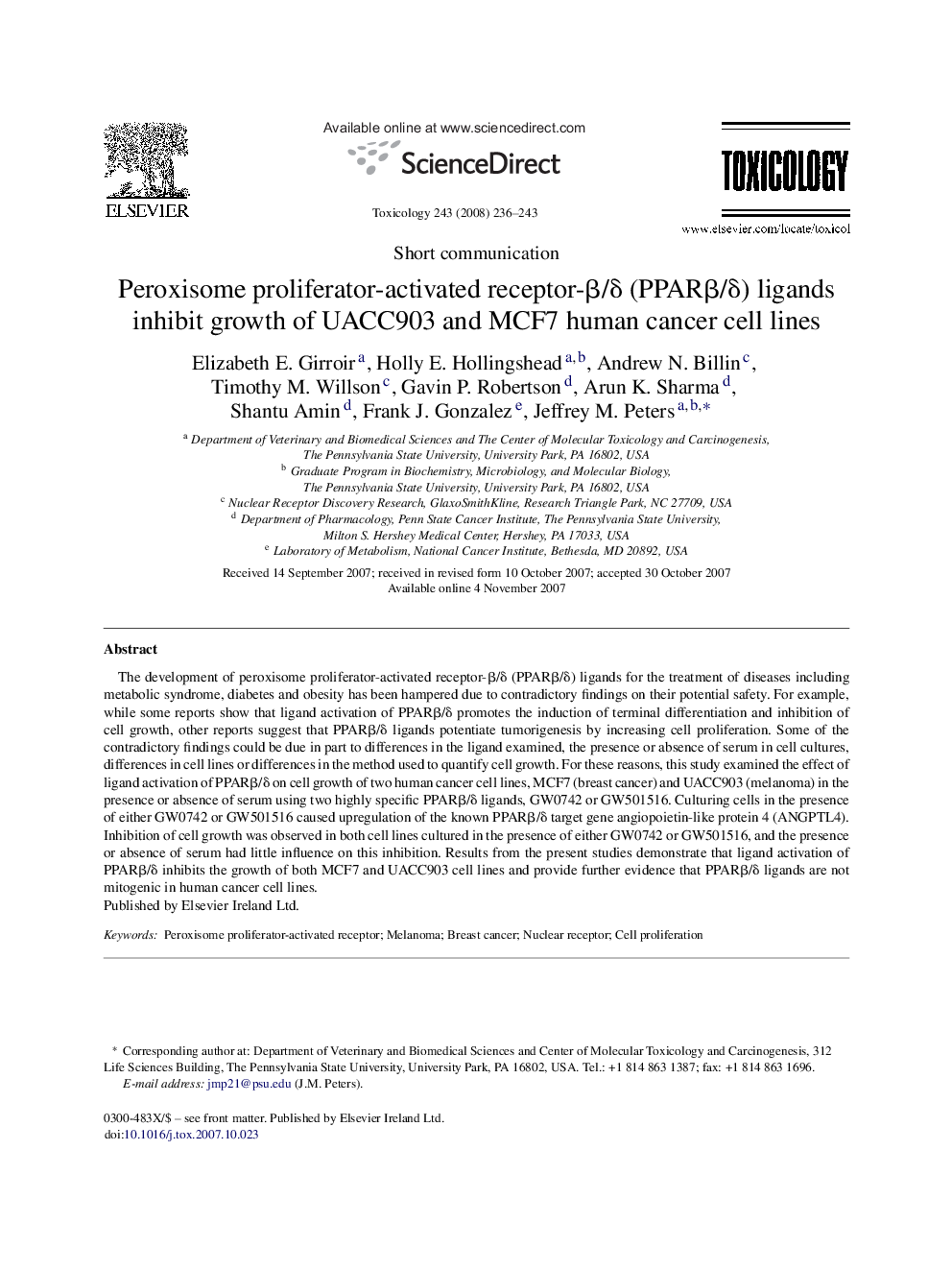| Article ID | Journal | Published Year | Pages | File Type |
|---|---|---|---|---|
| 2597425 | Toxicology | 2008 | 8 Pages |
The development of peroxisome proliferator-activated receptor-β/δ (PPARβ/δ) ligands for the treatment of diseases including metabolic syndrome, diabetes and obesity has been hampered due to contradictory findings on their potential safety. For example, while some reports show that ligand activation of PPARβ/δ promotes the induction of terminal differentiation and inhibition of cell growth, other reports suggest that PPARβ/δ ligands potentiate tumorigenesis by increasing cell proliferation. Some of the contradictory findings could be due in part to differences in the ligand examined, the presence or absence of serum in cell cultures, differences in cell lines or differences in the method used to quantify cell growth. For these reasons, this study examined the effect of ligand activation of PPARβ/δ on cell growth of two human cancer cell lines, MCF7 (breast cancer) and UACC903 (melanoma) in the presence or absence of serum using two highly specific PPARβ/δ ligands, GW0742 or GW501516. Culturing cells in the presence of either GW0742 or GW501516 caused upregulation of the known PPARβ/δ target gene angiopoietin-like protein 4 (ANGPTL4). Inhibition of cell growth was observed in both cell lines cultured in the presence of either GW0742 or GW501516, and the presence or absence of serum had little influence on this inhibition. Results from the present studies demonstrate that ligand activation of PPARβ/δ inhibits the growth of both MCF7 and UACC903 cell lines and provide further evidence that PPARβ/δ ligands are not mitogenic in human cancer cell lines.
